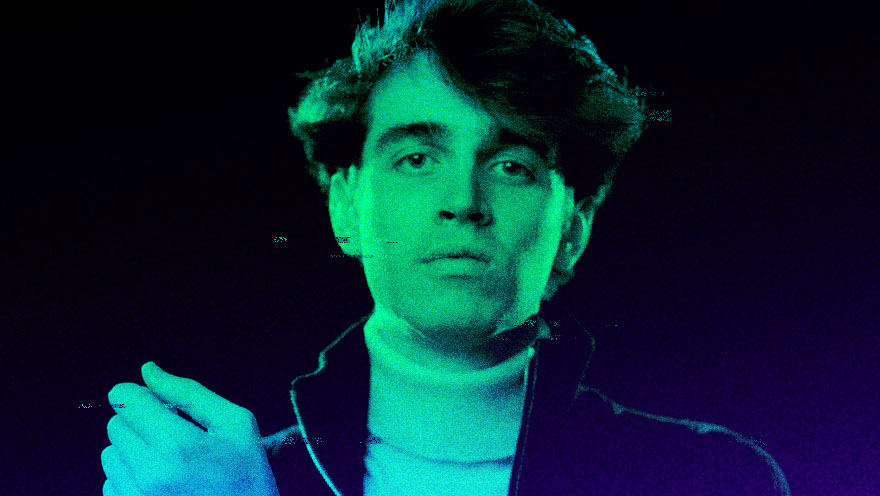Get the 5-minute newsletter keeping 73K+ crypto innovators in the loop.
© Defiant Media Inc 2022
Advertisement
Advertisement
Entrepreneur Bets Music is Untapped Niche in NFT Market
By: Aleksandar Gilbert
In high school, Cooper Turley was flipping Pokemon and Yu-Gi-Oh! trading cards for profit. His hustle has found several outlets since — journalist, DJ, trader, co-founder and investor.
Now, with $10M in hand — some of it his, some of it from millionaire crypto founders and investors — Turley has landed his next project: Changing the economics of making and enjoying music.
The key, no surprise, is NFTs. His venture, Coop Records, is an NFT venture fund focused exclusively on music. Turley, who says he has amassed the largest collection of music NFTs in the world, is the lone general partner, and limited partners are trusting that he will find diamonds in the rough: musicians, songs and projects that enable the buying, selling and minting of NFTs.
While NFTs in general are suffering mightily in the bear market, Turley says music NFTs are still an untapped niche. He estimates 2,000 artists have minted a music NFT and 10,000 collectors have bought one.
“This is a way for anyone in the world to participate in a secondary market of a limited quantity of digital goods,” Turley told The Defiant in a recent interview.
But NFTs are just the first step. Just as crypto tokens make it possible for people to invest in early-stage companies as if they were shareholders, so too can those tokens make it possible to “invest in artists in a way you would invest in a tech company, where you can buy Tesla stock, you can buy a Tesla car.”
Turley studied the business of music at the University of Colorado in Denver. On the side, he worked as a music journalist covering up-and-coming artists, and as a curator for electronic music blogs and, briefly, as a DJ.
Ethereum Classic Hash Rate plunges 48% Since Shift to Proof of Stake
Realizing the music industry wasn’t the most lucrative career choice, he turned to crypto. He was active in the ICO boom of 2017 to 2019 and wrote white papers for a few protocols.
After the 2018 crash, Turley, fresh out of college, kept at it, attending developer conferences and writing for crypto-native publications, including The Defiant.
He began trading crypto and contributed to decentralized protocols’ on-chain governance. Turley co-founded Friends With Benefits, the tokenized social club that has raised funds from venture capitalists and been profiled in The New York Times and The Washington Post. He invested in NFT platforms Zora and Foundation, and he helped a music streaming app, Audius, launch its own token.
The limited partners who invested in Coop Records cut checks for $50,000 to $1M, Turley said. Most of the money will go toward music NFT companies seeking pre-seed or seed-stage investors. About 10% will go toward up-and-coming artists, and the remainder will be used to purchase music NFTs on the open market.
“From a platform perspective, I think there’s an opportunity to really bring in a wave of composability that didn’t exist before,” he said. “You have, like, a distributor that puts your song on Spotify or Apple or Amazon music, but those are all streams that are happening in silos.”
Turley envisions a future for musicians in crypto that goes beyond the buying and selling of digital collectibles. Musicians would see revenue from streaming instantaneously, rather than the three to six month wait they suffer with Spotify.
Fans may also invest directly in an artist as if they were a publicly traded company, buying $5 stock in, say, Kanye West. He understands there will be naysayers.
“I think the idea of an artist giving ownership up to their fans is scary, because people think that the fans are going to dictate when they release music, who they released music with,” he said.
Art has always attracted investors. But turning a piece of art, whether it be a painting or a song, into an NFT invites financial speculation in a way that will make some artists uncomfortable.
Most fans of music dont understand why you would want a song to be an NFT.
“There’s almost like kind of this pressure that’s put on artists, and so the artists are now having to juggling not only the creative practice of releasing music, but also sort of the financial implications of having NFTs, tokens, etc.,” Turley said. “But I think that for the best, most forward thinking artists of the future are going to be very capable of handling and being able to do some really cool stuff with that.”
Turning this plan into reality is going to take some time. First, Turley hopes to build out the music NFT space. Even that poses its own hurdles.
“Most fans of music don’t understand why you would want a song to be an NFT,” he said. “The reality is, most people just listen to a song passively on Spotify. They don’t really know who that artist is. They don’t really know much about the project outside of it coming up on the radio.”
Although he is most connected to the electronic music scene, Turley will be looking to invest in artists with the deepest connections to their fans, the ones that can become the next STS9, or Lotus, or Pretty Lights.
“For other investors in the space that want exposure without doing a deep dive,” he said, “Coop Records can kind of be the vehicle that you can deploy your capital and feel confident that I’m going to invest it into companies that have a high potential of success.”
Get the 5-minute newsletter keeping 75K+ crypto innovators in the loop.
Rahul Nambiampurath•
Robin Schmidt•
Samuel Haig•
Rahul Nambiampurath•
Samuel Haig•
Advertisement
Author
Administraroot

